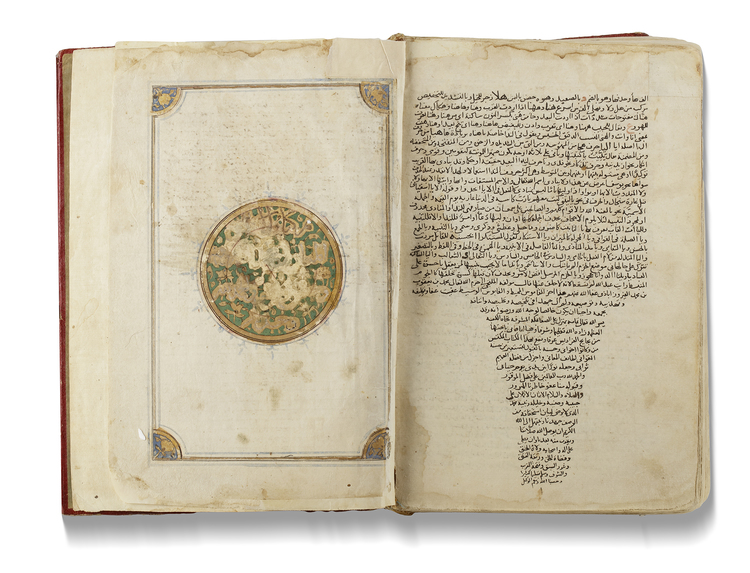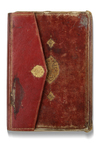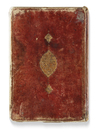AL-FIRUZABADI, AL-QAMUS AL-MUHIT WA'L QABUS AL-WASIT (THE GREAT DICTIONARY), MAMLUK THE HEJAZ, MECCA CIRCA 1400
Arabic manuscript on paper, 41 lines to the page, written in small Naskh script, key words and letters picked out in red or in larger black ink, f.1a with an illuminated headpiece with heading in large thuluth script and gold ink on a blue decorated ground, under a a roundel enclosing the name of the author on a gold and blue decorated ground.
In contemporary brown leather binding with gilt-stamped central medallion, with flap.
18 by 26 cm.
According to Mingana, “the author states that he completed his dictionary in his own house on as-Safa at Mecca " (where he lived almost continuously for twenty five years after 1368 AD).The author named his work al-Qamus al-muhit because it is a 'great ocean'. There are three copies of the work in the John Rylands Library, Manchester (see A. Mingana, Catalogue of the Arabic Manuscripts, Manchester, 1934, pp.1005-1008, nos.757-759).
The full name of the author is Yaqub bin Muhammad bin Ibrahim Majd-al-Din al-Firuzabadi (d. 1414). Firuzabadi, was of Persian origin, was born in Kazerun and educated in Shiraz, Wasit, Baghdad and Damascus. He spent ten years in Jerusalem, before travelling in Western Asia and Egypt, and settling in 1368, in Mecca for almost three decades. From Mecca he visited Delhi in the 1380s. He left Mecca in the mid-1390s and returned to Baghdad, then Shiraz and finally travelled on to Ta'izz in Yemen. In 1395, he was appointed chief qadi (judge) of Yemen by Al-Ashraf Umar II, who had summoned him from India a few years before to teach in his capital. He wrote widely, particularly in the field of lexicography, and the present work, his al-Qamus al-Muhit (literally 'The Expansive Ocean'), was so popular that the word qamus came to be adopted as the standard Arabic term for 'encyclopaedia' or 'dictionary'.












